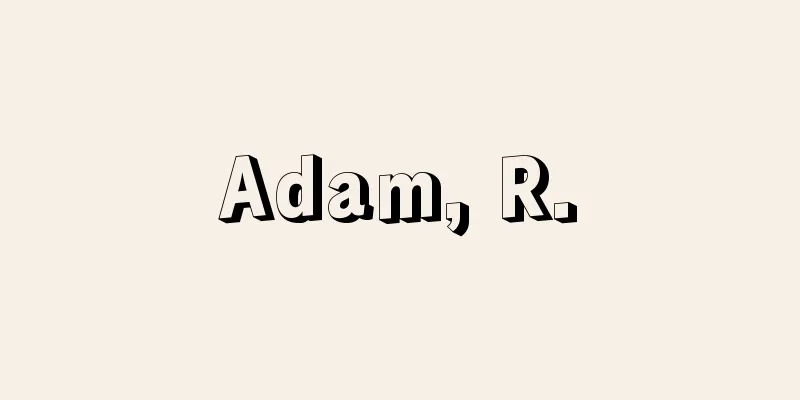Saturated steam

|
When the liquid and vapor of the same substance are in thermal equilibrium, such as water and water vapor, the vapor is called saturated vapor. This type of saturated vapor is not limited to water, but is defined similarly for other liquids as well. It is also defined for solids such as ice. The pressure of saturated vapor is called saturated vapor pressure, and this pressure is usually expressed in units of pascals (Pa) or "atmospheres." The saturated vapor pressure of a pure substance is determined only by temperature, and generally increases with temperature. However, if the surfaces of the liquid and solid are not flat, the pressure of this vapor will differ. In the case of water, the pressure increases from 0.00603 atmospheres to 1 atmosphere when the temperature rises from 0°C to 100°C. The vapor pressure of ice is 0.002561 atmospheres. Generally, when the temperature of a liquid is raised at 1 atmosphere, it will boil when the saturated vapor pressure reaches 1 atmosphere, and this temperature is the boiling point of the substance. When the vapor pressure is below the saturated vapor pressure, the vapor is called unsaturated vapor. High-temperature water vapor is also called superheated vapor. Vapor with a pressure higher than the saturated vapor pressure at that temperature is called supersaturated vapor. Supersaturated vapor is unstable, and the presence of dust and other particles easily causes droplets to form. When other gases such as air exist above a liquid, the partial pressure of the liquid's vapor is called vapor pressure, but the value of the saturated vapor pressure is hardly affected by the presence of such gases. The ratio of the vapor pressure of water in the air to the saturated vapor pressure at that temperature, expressed as a percentage, is called relative humidity. When such unsaturated water vapor is cooled and its vapor pressure becomes equal to the vapor pressure at that temperature, water droplets are formed. This temperature is called the dew point, and the relative humidity can be determined from the dew point and air temperature. [Aki Ono] [Reference] | |Source: Shogakukan Encyclopedia Nipponica About Encyclopedia Nipponica Information | Legend |
|
水と水蒸気のように、同じ物質の液体と蒸気が熱平衡にあるときの、その蒸気を飽和蒸気とよぶ。このような飽和蒸気は、水に限らず、他の液体の場合についても同様に定義される。また氷のような固体についても定義される。飽和蒸気の圧力を飽和蒸気圧とよび、その圧力は通常パスカル(Pa)または「気圧」を単位として表す。 純粋な物質の飽和蒸気圧は、温度だけで決まり、一般に温度とともに高くなる。ただし、液体と固体の表面が平面でないと、この蒸気の圧力は異なってくる。水の場合には、0℃から100℃になると、0.00603気圧から1気圧に増加する。なお、氷の蒸気圧は0.002561気圧である。一般に、1気圧の下で、液体の温度をあげ、飽和蒸気圧が1気圧に達すると沸騰し、この温度がその物質の沸点である。蒸気の圧力が飽和蒸気圧以下のときには、その蒸気を不飽和蒸気という。高温の水蒸気の場合には過熱蒸気ともいう。また、その温度の飽和蒸気圧よりも圧力の高い蒸気を過飽和蒸気という。過飽和蒸気は不安定で、ちりなどの存在により容易に液滴を生ずる。 液体の上に、空気など他の気体が存在しているときには、その液体の蒸気の分圧を蒸気圧とよぶが、飽和蒸気圧の値は、このような気体の存在にはほとんど影響されない。空気中の水の蒸気圧と、その温度の飽和蒸気圧の比を%で表したものを相対湿度とよんでいる。このような不飽和水蒸気を冷却し、その蒸気圧が、その温度の蒸気圧に等しくなると水滴を生ずる。この温度を露点といい、露点と気温から相対湿度を知ることができる。 [小野 周] [参照項目] | |出典 小学館 日本大百科全書(ニッポニカ)日本大百科全書(ニッポニカ)について 情報 | 凡例 |
Recommend
Hot Springs Law - Onsenho
This law was enacted in July 1948 (Showa 23) (Law...
short picture
...Toei succeeded in expanding the market with do...
Adachi (name) - Andachi
…He was the son of Kamatari's cousin Kome and...
Ichinohe [town] - Ichinohe
A town in Ninohe County in northern Iwate Prefectu...
Quadrature - mensuration; quadrature
It is used in two different senses. One is "m...
Tengri
For example, the Xiongnu worshipped the heavens, ...
Laburum adami (English spelling)
…Plant chimeras are broadly divided into segmenta...
Suntory [Stock] - Suntory
Founded in 1921 as Kotobukiya. With both the Sunto...
Swallow's nest (Tsubame no Su)
It is an ingredient used in Chinese cuisine, and i...
The Jungle Book
A collection of stories by British poet R. Kipling...
Macracanthorhynchus hirudinaceus (English spelling)
… The cod beetle Echinorhynchus gadi , females 4....
Prelude to the Afternoon of a Faun - Prelude to the Afternoon of a Faun
Original title, French: Prélude à l'après-midi...
Latemse School (English)
... The major art trends of the 20th century, apa...
shekel
…The natural mass system (b) was widespread in al...
landscape design
…Until then, it was called saku seizai (landscape...






![Ptolemy [I] - Ptolemy](/upload/images/67ccb8376df52.webp)


